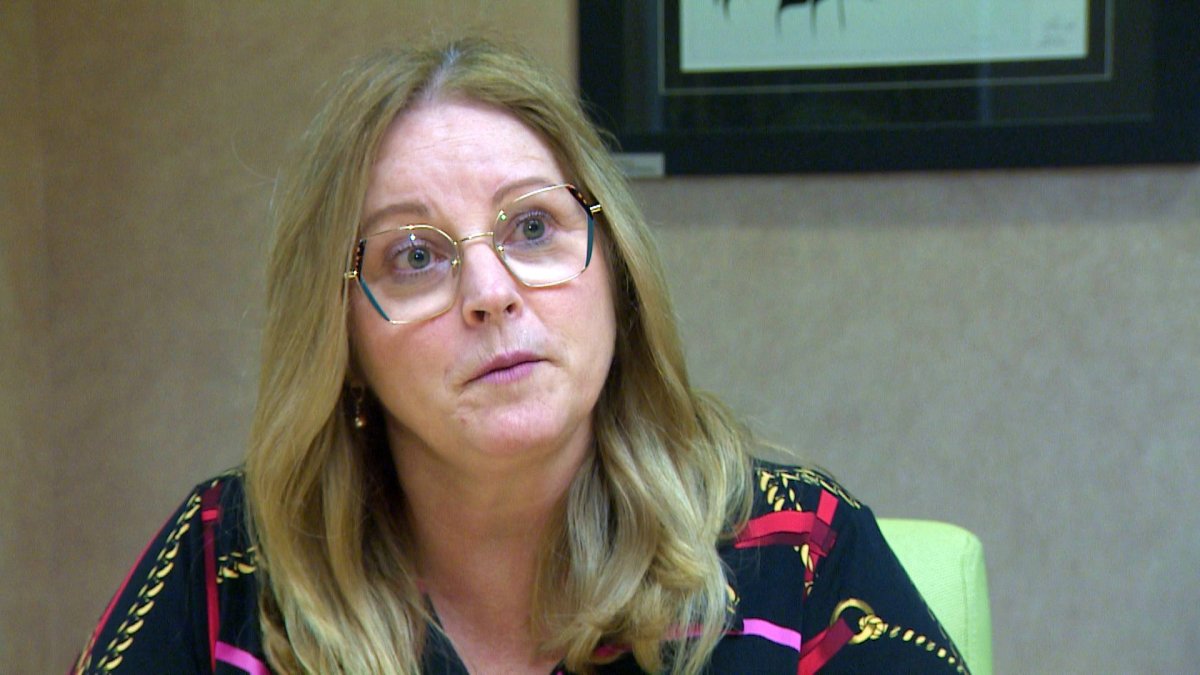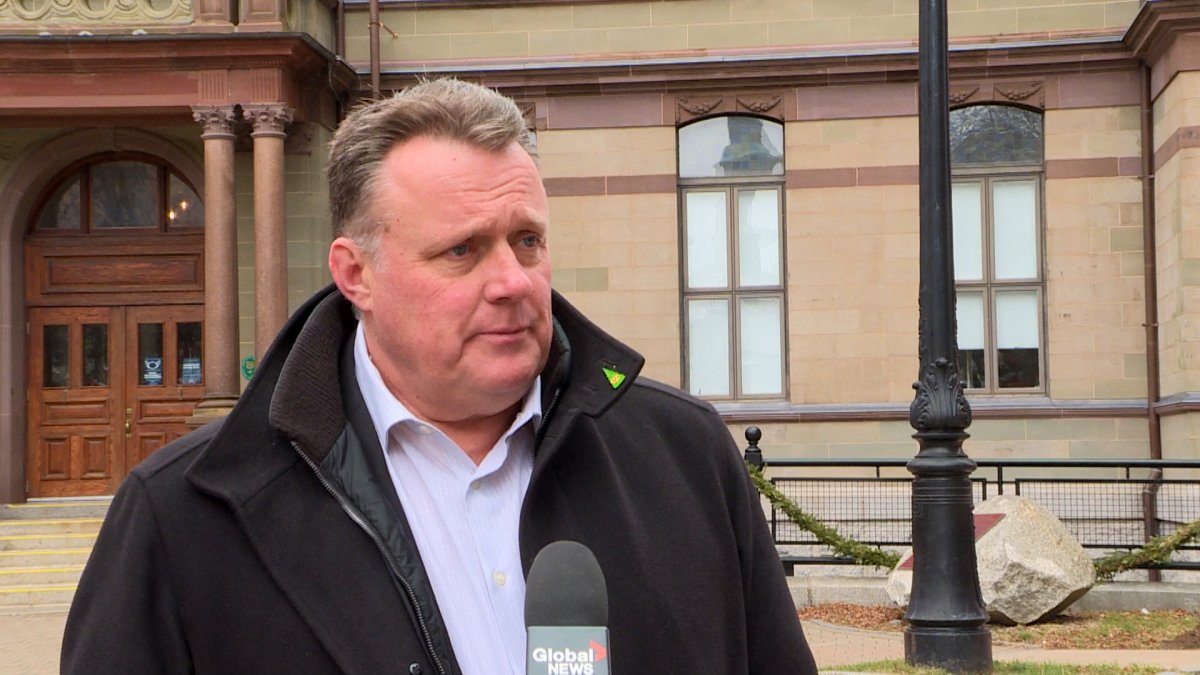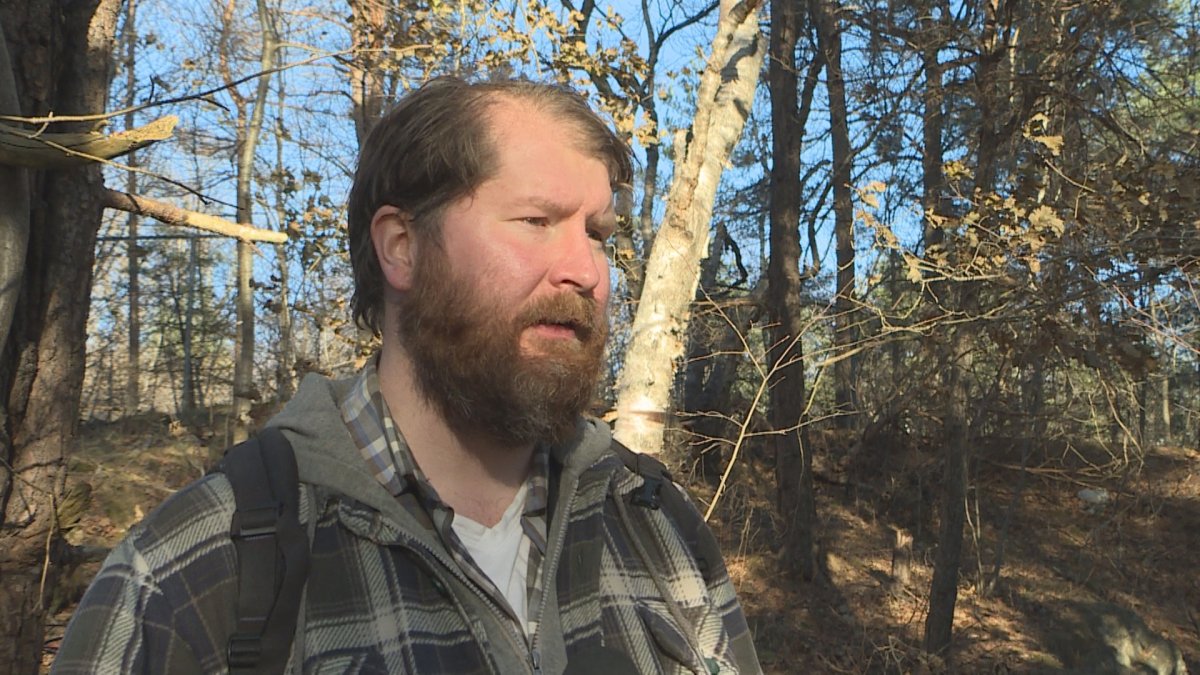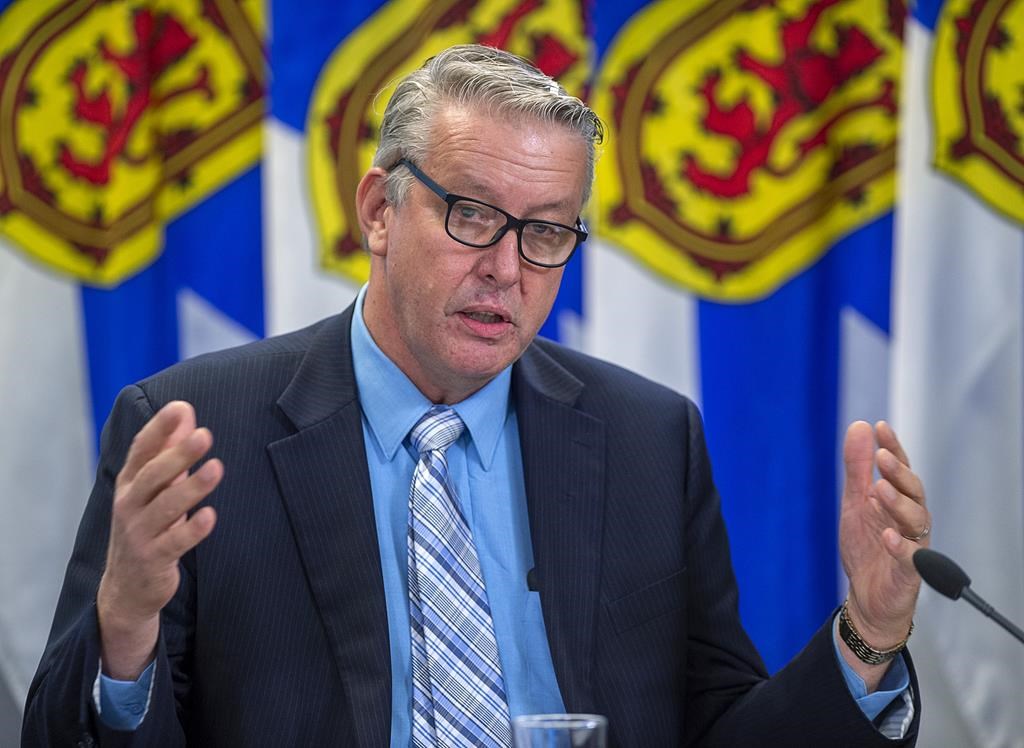This is Part 2 of a two-part series on homelessness in Halifax. Here is Part 1, which includes interviews with unhoused people and service providers.

As the number of unhoused people continues to grow in Nova Scotia, municipal and provincial officials say they’re working to get people off the street as quickly as possible.
But with no set target dates and winter setting in, service providers and outreach workers say time is of the essence.
“Winter is here. The ground is cold, the ground is frozen,” Nathan Doucet, an outreach worker with Out of the Cold Community Association, said in a recent interview.
“I’m worried that we’re going to see loss of life. I’m worried that we’re going to see loss of limbs.”

According to the latest numbers from the Affordable Housing Association of Nova Scotia, there are at least 734 actively homeless people in the Halifax area alone. That number was 467 at this time last year.
Data is sparse outside of Halifax, but it’s estimated there are hundreds more unhoused people in other areas of the province.
Karla MacFarlane, Nova Scotia’s minister of community services, told Global News that the increase in homelessness in recent years is “disappointing,” noting that the housing crisis is affecting communities across the country.
“It certainly is something that we take very seriously,” she said.
“Our government has made significant investments to ensure that there (are) emergency shelters and supportive housing across the province, and we’ll continue making those necessary investments.”
MacFarlane pointed to the Overlook – a supportive housing project at a former hotel in Dartmouth – as one example. MacFarlane said they are working on moving people in now.
The first project of its kind in Nova Scotia, the Overlook is supported by the province, as well as the federal and municipal governments through the Rapid Housing Initiative. It will house up to 65 people.
“We’re just really excited that these individuals are going to have a place to call home,” she said.
MacFarlane said it was a “unique model” that she’s excited about, and said “anything is on the table” when it comes to potentially expanding the program.
She also said the province recently invested in 10 new housing support workers across the province, and allocated $2 million to build modular housing for people experiencing homelessness or at risk of being homeless.
She said more information will be announced for that project in the new year.

No targets, timeframes for reducing homelessness
Though there are initiatives in the works, it’s unclear when the number of unhoused people can be expected to begin going down instead of up.
MacFarlane said her department is working closely with the Department of Housing, with a goal of finding people permanent housing solutions.
Asked if the province has set tangible targets and timeframes for that goal, she said “it’ll never happen as fast as any of us want it.”
“This government has made significant investments in housing and will continue, but will it happen as fast as we wish it could? Probably not,” she said.
“But we certainly are making those investments, we are committed, we are dedicated, and we will keep fighting.”
In an interview last week, Halifax Mayor Mike Savage said while housing is a provincial responsibility, the homelessness crisis “really … is the responsibility of all of us.”
“If we could just kind of put the jurisdiction to the side, see what the problem is, and see how each of us can help, that’s the way to do it,” he said.
Savage said the municipality works closely with the provincial government on homelessness. He said the Overlook is one example of different levels of government coming together to work on an issue.
Savage said homelessness is a problem inherited from previous governments of all political stripes, but the COVID-19 pandemic and the economic issues that came with it exacerbated the crisis.
Traditionally, though, he said provincial governments have not understood the importance of having truly affordable housing.
“Homelessness has not been seen as a crisis, even though it’s been a crisis for individuals in this community for a long time,” he said.
Encampments ‘a sign of the system not working’
In the summer, Halifax regional council designated four sites in parks where unhoused people could camp. A fifth site has since been established in the Sackville area.
The mayor said they’re not ideal, but they do provide a place where people can stay. He said the city provides services for those areas like sanitation, garbage pickup and water dropoffs.
“It’s a sign of the system not working – that we need to accommodate people to live in tents or sheds,” Savage said.
“It shouldn’t be that way, but for some people, it’s the only solution. And if they are going to live in that circumstance, then I think we need to make it as usable as possible for them.”
However, at least one unhoused person says services at those sites are lacking. Global News spoke with a man named Kyle last week, who said his neighbours at the site where he was staying have all left due to a rat infestation.
Savage said as a harbour city, Halifax has its share of rat problems, but said if there are issues at the parks, the city wants to hear about it.
“We should know about that and make sure we’re doing everything we can. Nobody should deserve to live like that,” he said.
Doucet, the outreach worker for Out of the Cold, said last week he would like to see more government officials visiting the encampment sites and speaking with unhoused people about what their needs are.
“There’s such a disparity between those who are making the decisions and those who are actually going through it,” he said.
In his interview, Savage said he toured the tenting sites before they opened. Asked if he would visit them again to speak with those living there, he said he would be “always happy to do that,” but added that he doesn’t want to intrude on people.
“If it’s helpful, I’m happy to talk, but people have the right to their dignity and their privacy, and they don’t need to be intruded upon all the time,” he said.
Savage said he has long been interested in homelessness and poverty and has “always made a point of talking to people who are experiencing it.”
‘A Band-Aid over a gaping wound’
Savage noted the city has set up a “lived experience committee,” which recently brought a report to council toward the end of November.
According to the report, interviews were conducted with 16 unhoused people in HRM, in which they were asked questions about how they became homeless, where they were sheltering, their concerns around safety and policing, and what could improve their situation.
The report made a number of recommendations around better supporting people living in encampments – but noted that what’s really needed is more truly affordable housing.
“Normalizing homeless encampments is a necessity that no one feels good about – it is putting a Band-Aid over a gaping wound. Most people working directly on this issue agree that it is the best form of harm-reduction we can implement for the current state and outlook of the problem,” the report stated.
“Halifax needs more social, supportive, and deeply affordable housing options across all points of the housing spectrum. This is the only practical solution for ending homelessness in our community.”
Savage agreed.
“We need more permanent, deeply affordable housing for people who need it,” he said.
“I don’t think you can solve this problem just on a private-sector basis. I think that governments have to accept that they have to be directly involved in some of the housing.”
More public housing needed
Advocates, experts, service providers and unhoused people have long been calling for more public housing in the province.
The bulk of public housing in Nova Scotia was developed before the 1970s. After the Second World War, the federal government made major investments in public housing across the country, but by the 1990s, those investments largely disappeared.
As the cost of living rises, demand for public housing has also increased. Between January and September 2022, the wait-list for public housing grew 10 per cent, sitting at 6,596 applicants – representing more than half of the 11,200 public units available.
While some “affordable” housing projects have been announced in recent years, those prices are usually based on market rates – which have risen exorbitantly – rather than income levels. Affordable housing is usually defined as costing 30 per cent or less of someone’s income.
Eric Jonsson, who works as a street navigator with the city, says he is a “firm believer” in the philosophy of housing first: getting a roof over someone’s head, and then providing the wraparound supports they need.
“I’ve seen that work in so many people who you wouldn’t think could live independently … you put a roof over their head, and not all the time, but a lot of the time, most parts of their life really, really improve,” Jonsson said.
“The biggest issue is just finding a place, finding a landlord that would rent to you.”
Jonsson said more non-profit and public housing can help people get their foot in the door and off the street.
Working with what we have
But for now, the province is focusing on improving its current public housing system rather than building more, according to Housing Minister John Lohr.
In an interview, Lohr said the province is reorganizing how public housing is managed by creating a Crown corporation to manage its five regional public housing authorities.

He pointed to an auditor general report from June that found the province’s current public housing supply was being poorly managed. One of the issues was that of “overhousing” – tenants living in units larger than they require and families remaining on the wait-list.
“We know that if we dealt with overhousing, we could take a thousand people off the list,” Lohr told Global News.
He said that work won’t be easy, as people might not want to move, but he said the government is committed to making sure they would remain in a public housing unit.
However, Lohr said overhousing is just one issue, and the report had “quite an extensive list of issues” in public housing that need to be addressed.
“We’re trying to do a better job in that, and maybe after that we’ll look at it (creating more),” he said. “We don’t feel we have a handle on that. So adding more to the mix is not really how we want to go about it right now.”
He said currently, it costs about $165 million per year to run public housing, and the province takes in about $65 million in rent, leaving them with a bill of about $100 million.
“So that’s one reason why we need to look at how we’re doing it and see if we can do it better and more efficiently,” he said, though he added there are other programs and funding in the works.
Last week, the province said it would allocate $12.5 million through the Community Housing Infrastructure and Repair Program to help co-operative housing groups and non-profit housing providers complete capital repairs to improve health, safety and accessibility.
Lohr noted that the province is working with partners to increase and preserve affordable units.
Over the summer, for instance, the province launched a lending program that would allow non-profit organizations to purchase existing housing units. About 300 affordable units have been saved through that program, he said.
Another key partner is the Canada Mortgage and Housing Corporation, which administers the Rapid Housing Initiative.
“We know that if we work with partners, we can make our money go further. We know that for sure,” said Lohr. “So we’re doing that in many, many different areas.”
Meanwhile, Jonsson, the street navigator, believes there’s room for the province to better use the public units they already have while creating new ones.
“There’s been such chronic underfunding of public housing over the years that people have a bad image in their mind of, like, bedbugs and falling apart units, which sometimes is the case, but I think most of those problems would go away if you funded it appropriately,” he said.
“I think it goes hand in hand with taking care of existing stock and making sure it’s not falling apart, but also building more, because I really don’t think the private market is the answer for a lot of people.”
— with files from Alicia Draus









Comments